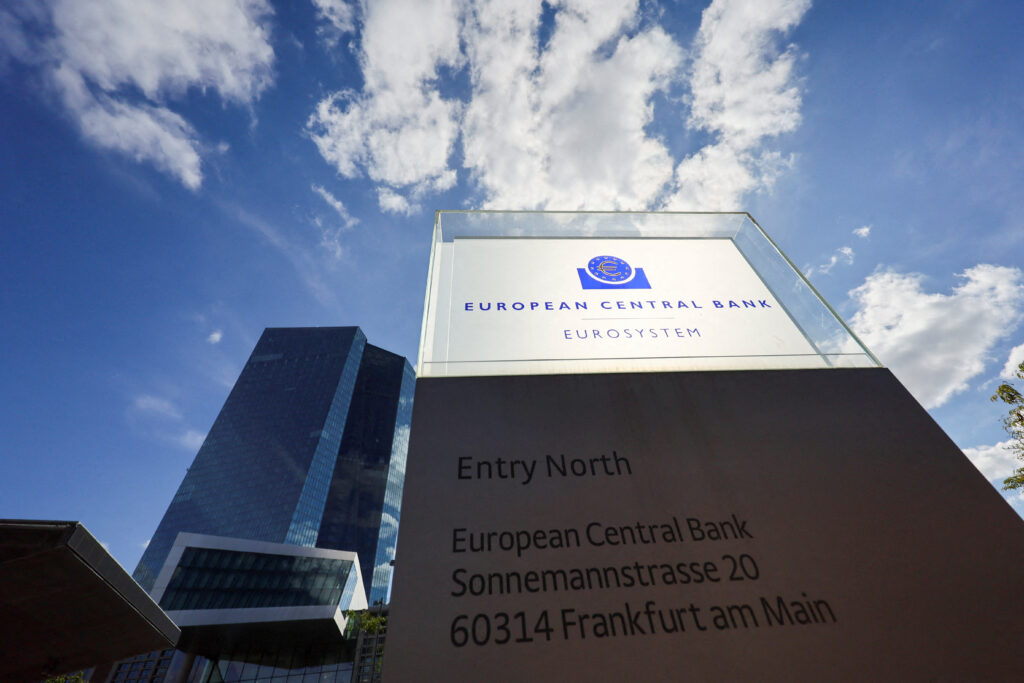

The European Central Bank has cut its headline interest rate by a quarter of a point to 3.25% after inflation in the eurozone fell below its 2% target.
ECB policymakers were under pressure to cut its interest rate after released figures out earlier today showing inflation in September easing to 1.7%, down from 2.2% the previous month. This cut is the ECB’s first back-to-back interest rate cut in 13 years and its third of 2024.
This rate cut puts the ECB two ahead of the Bank of England, which is widely forecast to cut borrowing costs in the United Kingdom by 0.25 percentage points from the current level of 5% when its monetary policy committee meets next month.

Explaining the rate cut
In making the announcement this morning, the ECB explained that rate cut was based on “an updated assessment of the inflation outlook, the dynamics of underlying inflation and the strength of monetary policy transmission….The incoming information on inflation shows that the disinflationary process is well on track. The inflation outlook is also affected by recent downside surprises in indicators of economic activity.”
The deposit rate sets the return paid to eurozone banks when they make overnight deposits with the Eurosystem. ECB president, Christine Lagarde said the latest data shows that the Eurozone economy was weaker than previously expected. According to her, “the latest data is all heading in the same direction, downwards, and points to more sluggish growth”.

Meanwhile, in the United States, the Federal Reserve has indicated it is minded to trim rates in the coming months, although there have been hints it may skip a cut at next month’s meeting. Joe Nellis, an economist at Cranfield University argues: “ECB policymakers will hope that this cut provides a boost to the German (and wider eurozone) economy, inspiring consumer spending, encouraging investment, and ultimately stimulating the economy.
“With the German economy likely to shrink for its second consecutive year, we can expect the ECB to cut rates by another 0.25% in December – this is a decision policymakers will feel they have to make if they are serious about catalyzing growth in the eurozone’s largest economy.”






Comments